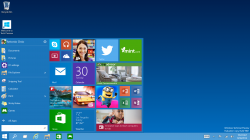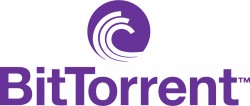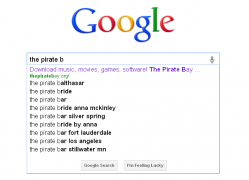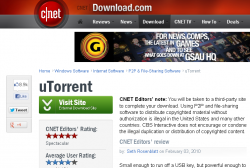I had the good fortune (and quick online ticket ordering skills) to catch John Oliver performing at the Palais Theatre here in Melbourne last night – it was a fantastic show from a fantastic comedian. He really doesn’t like our Prime Minister, which isn’t all that strange because nobody likes him, not even people from this own political party. All very funny stuff.
This week’s news stories are not that funny. Not just because I’m not a particularly good comedian (or a comedian at all), but because these stories were never meant to be funny anyway. Most of the stories you read here carry a fog of sadness, and at best, they’re funny in a “I would laugh if this wasn’t so depressing” kind of way. I bet you can’t wait to read them now!
![]()
Some more Windows 10 headlines this week, as it’s been revealed that some old games with outdated DRM won’t be supported by Microsoft’s new OS. Many of these old DRM toolkits were notorious when it comes to being security risks, and Microsoft has said enough is enough when it comes to these being supported on their brand new OS.
Unfortunately, Windows 10 is also getting a bit of notoriety due to Microsoft playing fast and loose with the new OS’s privacy rules. Apart from the bizarre Wi-Fi password sharing feature, which shares an encrypted hash of your Wi-Fi password with your email, Skype and Facebook contacts, via Microsoft’s server. Microsoft’s justification is that this means you no longer have to share your password with you people (which may be more insecure), but sharing anything with so many people, especially a group as diverse as your contacts list (many of whom on mine I’ve only ever talked to once, and probably only via email), can never be that secure. The fact that the password hash is also stored on Microsoft’s servers, is also troubling.
And with this, along with other troubling behaviour from W10, including sending the results of local searches to Microsoft, plus the company’s data sharing with a well known anti-piracy firm, and also add to this last week’s news story about Microsoft’s controversial service agreement changes, has now led to many torrent trackers banning users who use the OS.
It does seem like an overreaction to me, to ban an entire OS. Yes, the privacy in Windows 10 is an issue, but there are workarounds, plus some of the claims are more speculation than actual privacy intrusions (for example, Microsoft has been working with anti-piracy firm MarkMonitor for years, not just with Windows 10).
I’ve been using Windows 10 for a couple of weeks now (after accidentally agreeing to upgrade from 8.1 – stupid dialog box popping up while I was typing something), and it’s clearly Microsoft’s best OS since 7. More and more people will start to use it, and to ban everyone just because of a few problems, and a few misconceptions, doesn’t seem quite right.
——
Some in the music industry are not happy with Spotify, because the company isn’t earning much from the ads on the free tier of the subscription service, and so isn’t paying out much, despite the huge number of people listening to songs. Spotify argues that the free tier’s real competition is with radio (also free to listen) and piracy, and that it should be used as a promotional tool, rather than a revenue earner. Those in the music industry argue that this devalues their work, and ultimately affects their earnings.
So the pressure has been building on Spotify to drop their free tier, and basically do what Apple Music is doing – a long trial, but after that, it’s pay or go away. But Spotify warns that if this were to happen, the only real winner would be piracy.
To me, it’s clear that free Spotify’s real benefit is its anti-piracy effects. Not only does it help convert pirates to paying customers, through ad revenue, it also convinces others of the value of upgrading to a premium plan. And most importantly, it’s helping to create a new generation of music listeners that have never had to resort to piracy just to listen to a new song (Taylor Swift songs aside). And this has to be worth something to the music industry.
![]()
Those keeping up with my weekly Blu-ray revenue updates will have noticed the very depressing trend lately. Lack or really good releases haven’t help, but Blu-ray revenue seems to have plateaued. But new data shows that discs are still quite popular, and still making studios most of their money when it comes to home entertainment. In fact, Nielsen’s data shows that 20% of users still exclusively buy movies on discs.
The data also shows that SVOD is changing how people watch their movies. It’s making them go to the movies less, and also buying less TV shows on discs. And I bet if you actually asked one of the respondents, they would tell you it’s also making them buy less crappy movies and TV shows, the kind of stuff that’s very prevalent on Netflix and others, and stuff you used to buy from the bargain bin (or go watch at the cinema, ideally using a discounted ticket offer, when there’s nothing else to do). I know it’s saved me a lot of money already, and that has made me far less guilty about my disc buying habits!
![]()
Add another one to the “Xbox One Slim” rumor pile. Or rather, this one is for the Xbox One Mini – a Xbox One console that removes the Blu-ray drive, making it only a digital only console.
I’m not sure I quite believe this one. While removing the Blu-ray drive is the easiest way to make the Xbox One both smaller and cheaper, I’m just not sure if we’re ready for a digital only game console. Maybe the Internet situation in the US is a lot better than here in Australia, but I wouldn’t want to wait ages to download GBs of game data. And what happens after you fill the HDD? Start deleting games and then re-download them later if you want to play them again – what a waste of time and bandwidth! A digital only game console would only work if it had a huge (I mean 5TB+) hard-drive, and when fiber broadband becomes the norm.
This particular rumour also brings back memories about the obsession of adding a Blu-ray drive to the previous Xbox console – a popular and long running rumour about a Blu-ray add-on drive for the 360. I’m sure it was mostly spread by PS3 fans, mocking 360 owners for not having Blu-ray capabilities and for Microsoft’s backing of HD DVD. But now that the Xbox has a Blu-ray drive, all the rumours are about getting rid of it. Kind of ironic!
——
That’s it for another week, same bat-time, same bat-channel, next week!










